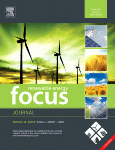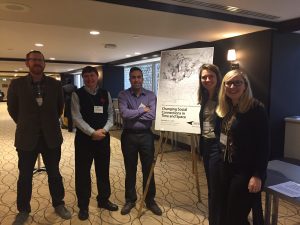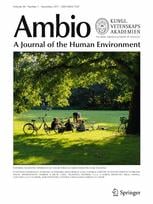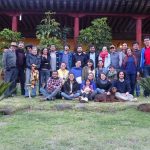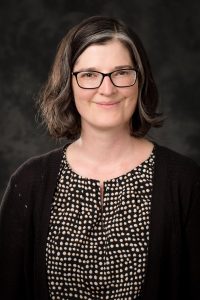 Angie Carter presented research at the annual Women, Food and Agriculture Network conference held this year in Madison, Wisconsin November 2nd-5th. She joined Monica White (assistant professor of environmental justice at UW-Madison), Savi Horne (executive director of Land Loss Prevention), and LaDonna Redmond (Diversity and Community Engagement Manager at the Seward Community Co-Op in Minneapolis and founder for Campaign for Food Justice Now) on a panel moderated by Ahna Kruzic from Food First. The panel shared research and history of the movement for land justice in the United States. Carter spoke about her chapter “Changes on the Land: Gender and the Power of Alternative Social Networks” published last summer in the book Land Justice: Re-imagining Land, Food, and the Commons in the United States, an anthology edited by Food First and also published as an issue brief last spring.
Angie Carter presented research at the annual Women, Food and Agriculture Network conference held this year in Madison, Wisconsin November 2nd-5th. She joined Monica White (assistant professor of environmental justice at UW-Madison), Savi Horne (executive director of Land Loss Prevention), and LaDonna Redmond (Diversity and Community Engagement Manager at the Seward Community Co-Op in Minneapolis and founder for Campaign for Food Justice Now) on a panel moderated by Ahna Kruzic from Food First. The panel shared research and history of the movement for land justice in the United States. Carter spoke about her chapter “Changes on the Land: Gender and the Power of Alternative Social Networks” published last summer in the book Land Justice: Re-imagining Land, Food, and the Commons in the United States, an anthology edited by Food First and also published as an issue brief last spring.
|
“How can communities help sustain the health of Lake Superior in the face of mining, climate change, forest change, invasive species, and emerging chemicals of concern? The challenges facing Lake Superior are many–yet local, regional, and international communities overcame enormous threats to the lake’s ecosystems in the past century.
Sustaining Lake Superior asks: What can we learn from the recoveries around Lake Superior over the past century, as we face new interconnected challenges from climate change, synthetic chemicals, and forest change?” Retrieved from http://www.sustaininglakesuperior.com/
|
